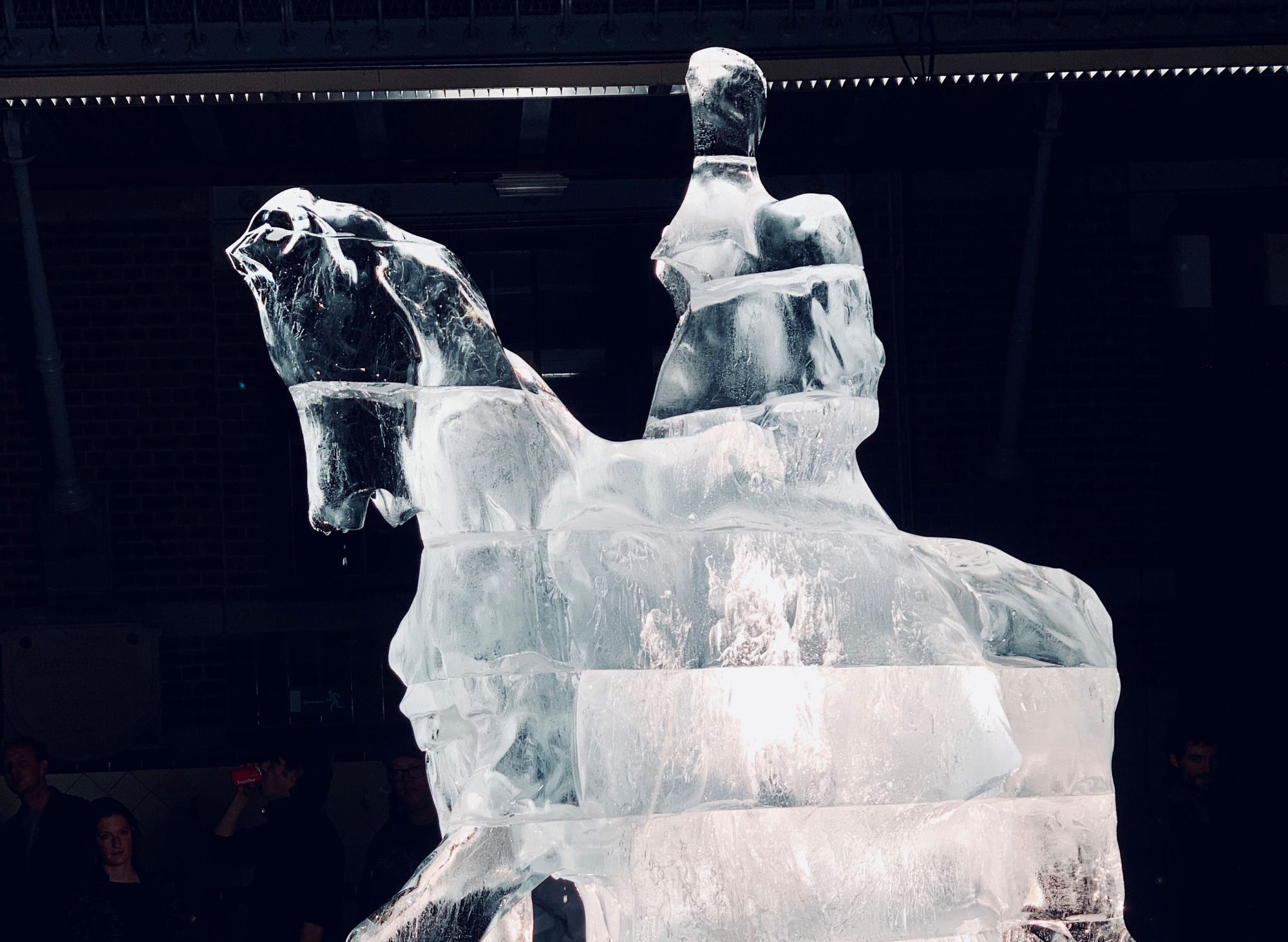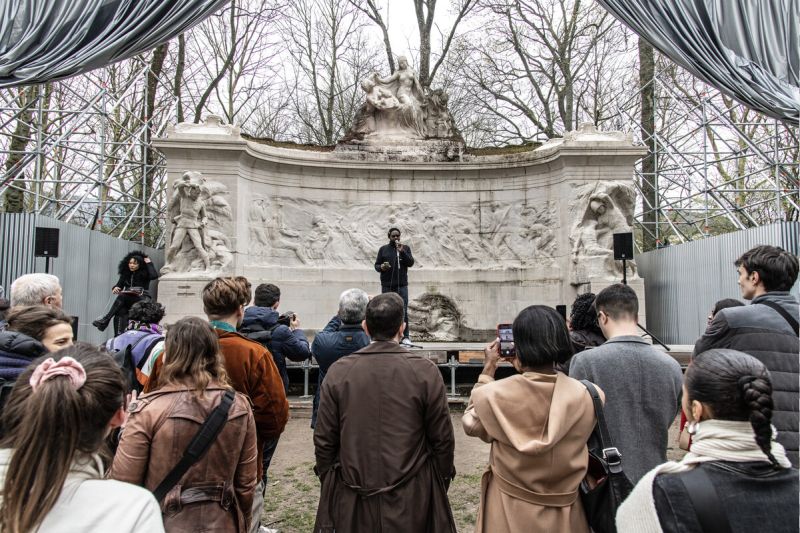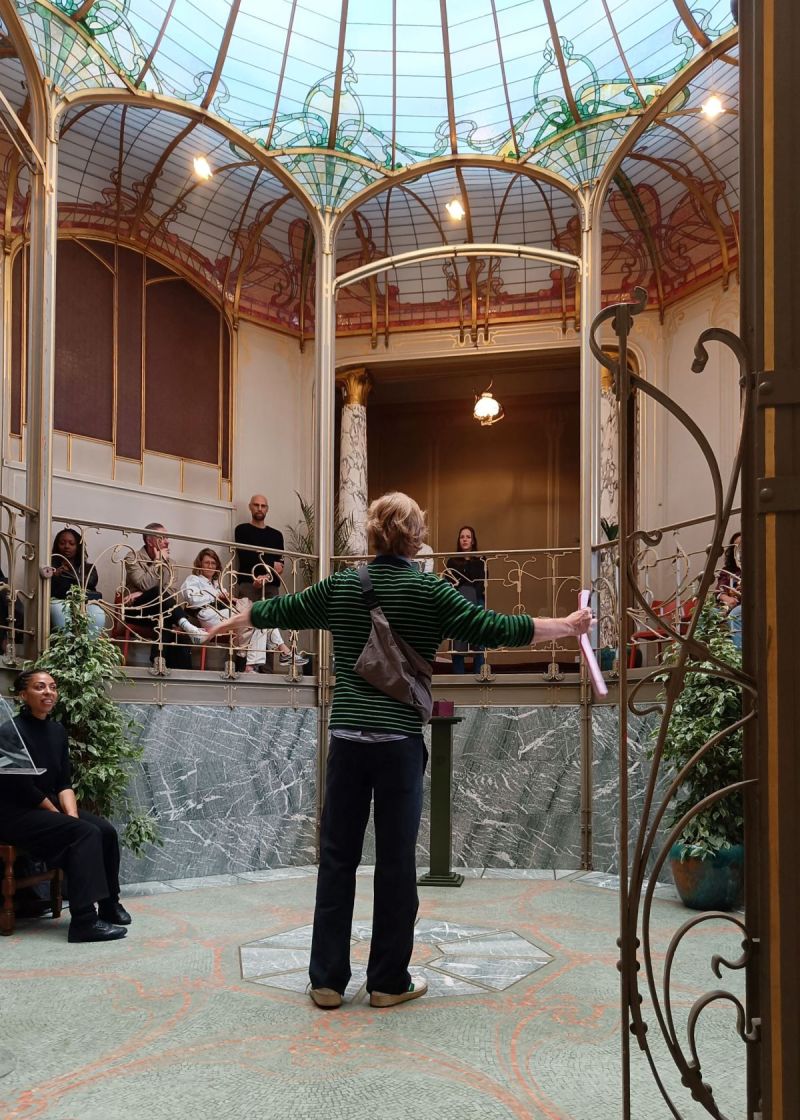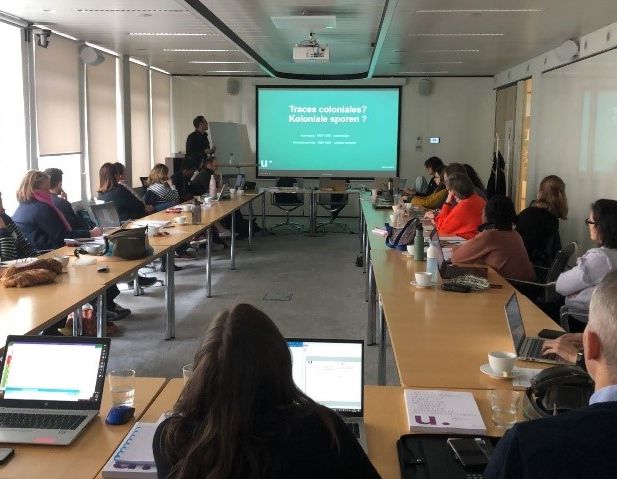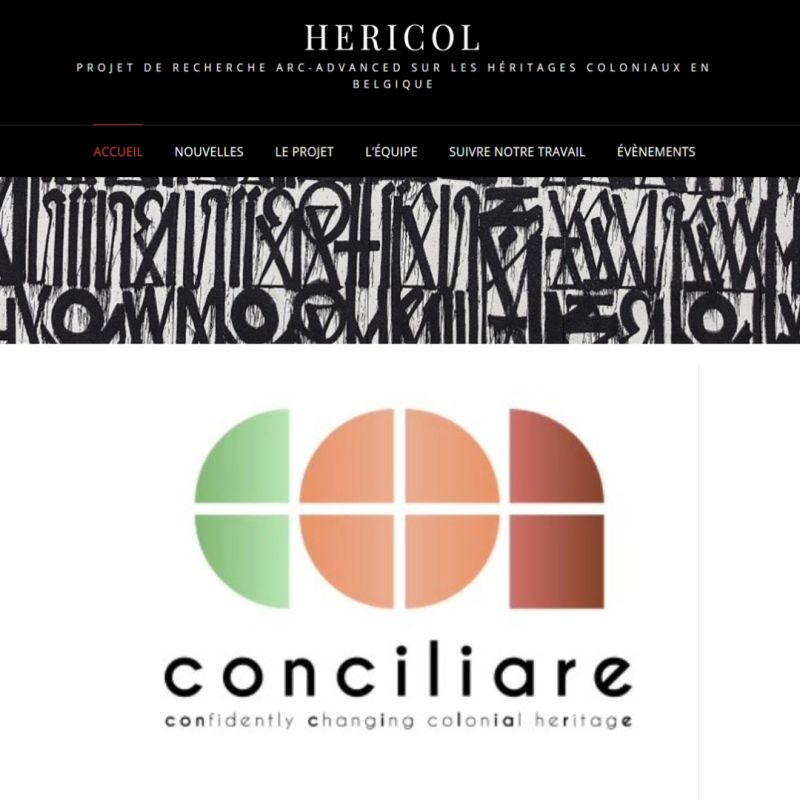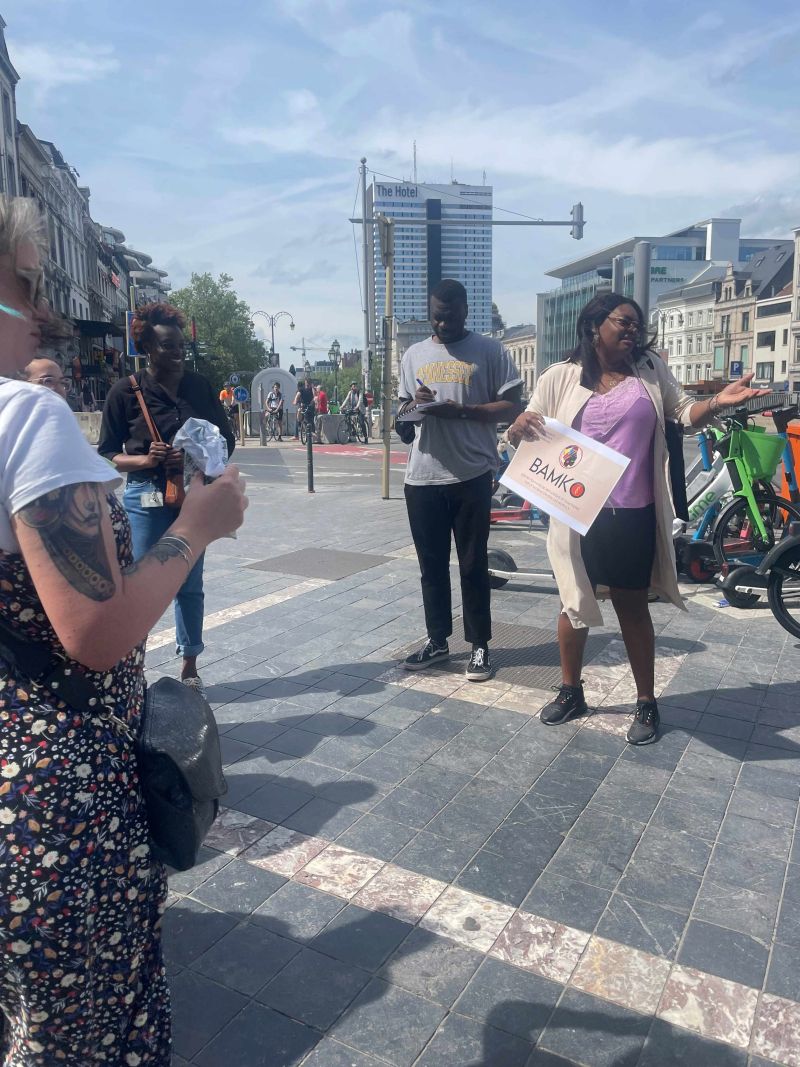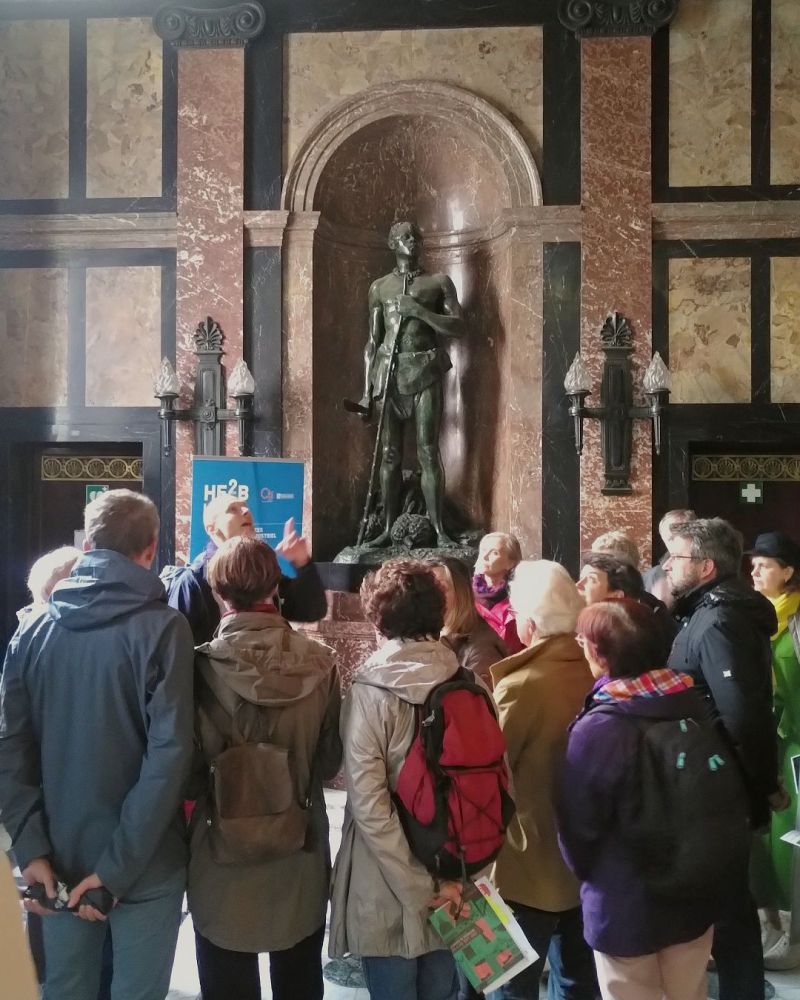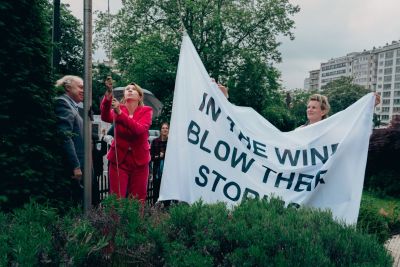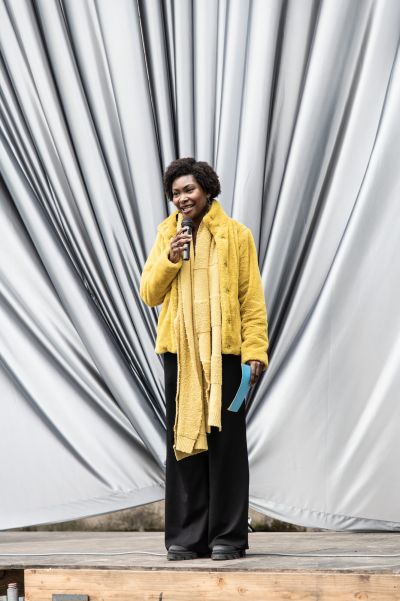A participatory debate and process
Calls for participation, initiatives and events organised in the frame of the action plan “Towards the decolonisation of public space in the Brussels Capital Region” are relayed in this section.
Do you have a question or a suggestion? Do you wish to keep us up to date about an event relating to the decolonisation of public space?
The Grand Opening (21 March 2024-21 March 2025)
On 21 March 2024, the installation “The Grand Opening” was inaugurated to mark the International Day for the Elimination of Racial Discrimination. This installation, placed in front of the Monument to the Belgian pioneers of the Congo in the Parc du Cinquantenaire, has remained in place for a year. It provided the opportunity to debate on Belgium’s colonial past, in particular through the artistic programme “Decolonial Intersections”.
Artist involvement
During their residency at LAB·AN, organised as part of the “Art Nouveau Brussels 2023” programme, seven poets sought words to describe the relationship that exists between Art Nouveau and (colonial) history on the one hand and today’s society on the other hand. During two “Art Nouveau Poetry Act” evenings in 2024, the artists recited their texts in the Hotel van Eetvelde.
You can replay their speeches in the form of podcasts.
Dedicated work with the Brussels municipalities
In the frame of action 12 (Teaming up with the Brussels municipalities to develop a method and guidelines for dealing with colonial traces), representatives from the Brussels municipalities met twice in 2024 to share good practices, highlight their needs and reflect on common guidelines for dealing with colonial traces within the Brussels municipalities.
A process monitored and analysed by research
Researchers from the project CONfidently ChangIng coLonIAl heRitagE (Conciliare) and a researcher from the project HERICOL (Héritages coloniaux en Belgique - Belgian colonial heritage) monitor and analyse the implementation of the action plan as observers on the supervisory committee.
Decolonial guided tours for civil servants
As part of a joint reflection by Urban and Perspective on the theme of “Gender and the City”, regional officials took part in two guided tours (on 25 April and 14 May 2024) entitled “The Matonge district from a colonial and feminist perspective”.
Heritage Days 2022
On 17 and 18 September 2022, the Heritage Days in Brussels focused on the traces of colonisation. Numerous visits, conferences and events have then revealed the traces of Belgium’s colonial past in Brussels.
